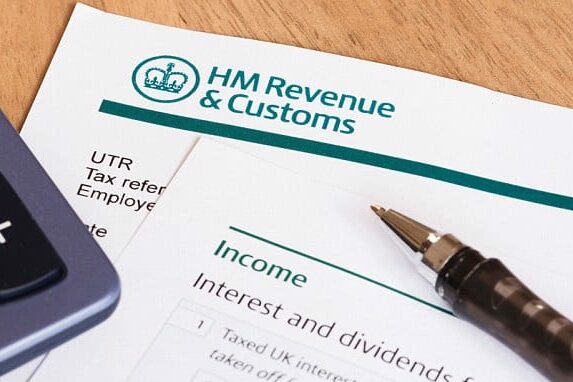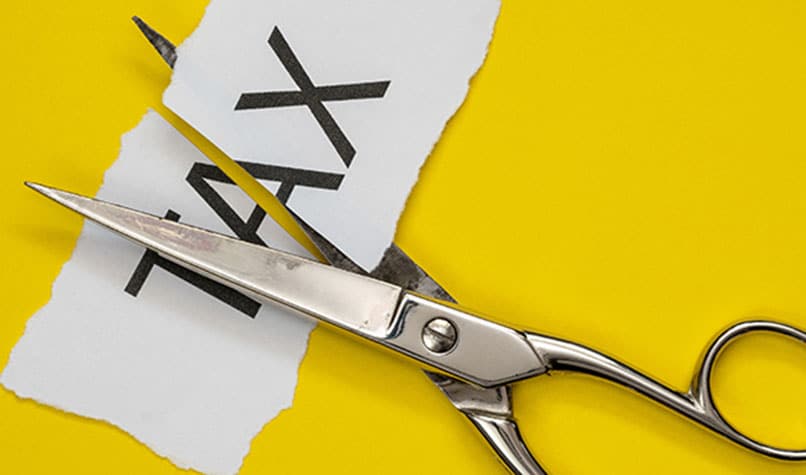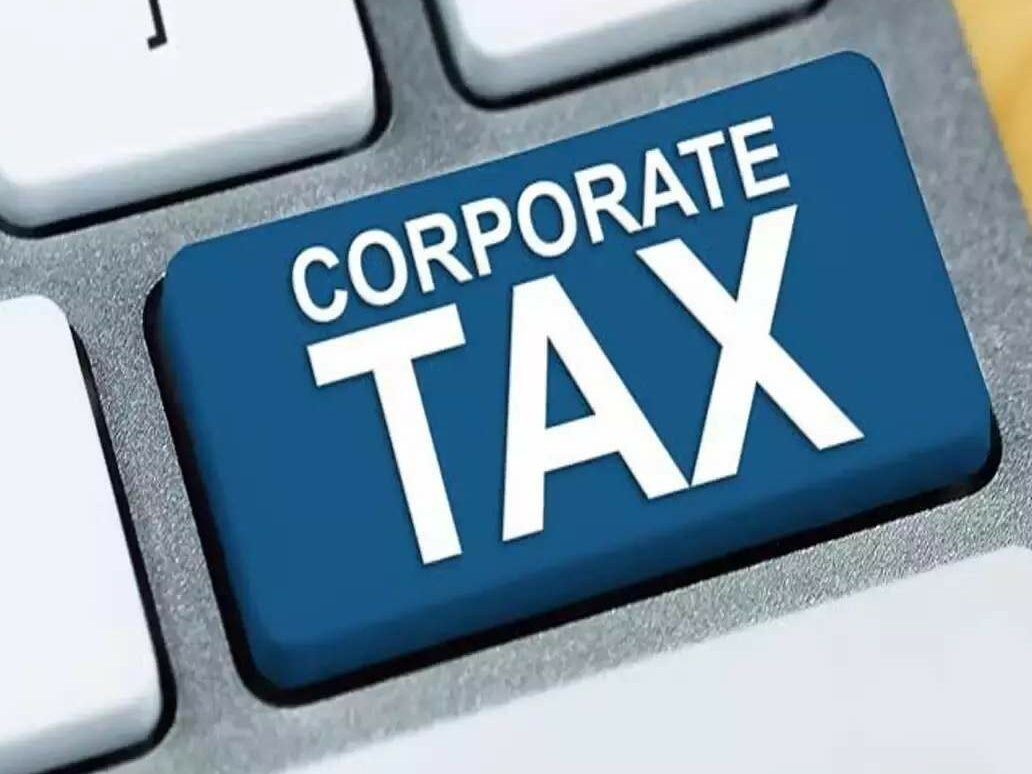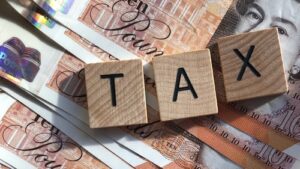How to reduce corporate tax in UK?
If you are looking to invest as an expat or high-net-worth individual, which is what I specialize in, you can email me (advice@adamfayed.com) or WhatsApp (+44-7393-450-837).
This article isn’t formal tax advice and is here for informational purposes only.
The information and facts might have changed since we wrote this article.
Table of Contents
Introduction
Your company is required to pay Corporation Tax on its yearly profits because it is a limited company. Fortunately, there are numerous strategies for lowering your tax burden, so it’s crucial to understand all the various forms of tax relief that are accessible.
This article offers a succinct overview of how to reduce corporate tax in UK. Specifically, it gives an overview of allowable business expenses that you can deduct, as well as suggestions for how to take money out of your business tax-effectively and make the most of capital allowances and investments in employee benefits and research.
To ensure you can maximize savings while remaining compliant, it may be important to seek professional advice. HMRC guidelines must be followed when attempting to reduce Corporation Tax liability.
If your company is not currently subject to Corporation Tax, you might think about incorporating to benefit from the lower tax rate and a broader range of allowable business expenses.
Corporation Tax in the UK 2022
The current tax year’s corporation tax rate on business profits is 19%, which means a company making £100,000 in annual profits must pay £19,000 in corporation tax.
However, claiming all permitted expenses and deductions and giving a more accurate picture of the company’s profits are the keys to ensuring that your business pays no more Corporation Tax than it needs to.
For instance, if a company spent £5,000 on a piece of new equipment but neglected to claim the capital allowance it was due, the profits are actually overstated by £5,000 in this case.
This results in the organization paying £1,000 more in Corporation Tax than necessary, which is a costly oversight, to say the least.

Changes in Corporation Tax in the UK by 2023
The increase in Corporation Tax was announced in the Government’s 2021 Budget. It will take effect on April 1, 2023.
Corporation Tax is currently charged at a flat rate of 19%.
Here are the changes in corporation tax in the UK that will take effect starting April 2023:
- For businesses with profits of at least £250,000, the standard rate of corporation tax will be 25%; this rate is applicable to all profits.
- Companies with profits of at least £50,000 will be subject to a Small Profits Rate of 19%.
- Between £50,000 and £250,000, the primary rate will taper.
- These rules do, however, have a few significant exceptions, and the specifics are worth mentioning.
How To Reduce Corporate Tax In UK
1. Claim All Permitted Business Expenses
Make sure you’re claiming everything at this point. Recording every £3 bus fare and £2 pad of paper and keeping track of small expenses like a £3 pad of paper and a £5 train ticket can occasionally be a hassle, they all add up over time.
In order to lower your company’s profit and consequently lower your corporation tax liability, you should claim them as expenses.
Claiming all allowable business expenses, no matter how small, is one of the simplest ways to reduce your corporation tax bill. Every business has expenses related to running its operations, such as telephone bills, internet fees, and travel costs.
Making sure you are tracking and deducting all allowable business expenses is important because they lower your company’s profit and, in turn, the amount of corporation tax due.
There are no strict limitations on what you can claim, so you will also have items that are specific to your industry to claim.
What one business might consider to be a glaring extravagance could be a standard requirement for another.
Just keep in mind the “wholly and exclusively” requirement of HMRC: everything you claim must be used solely for business.
Simply being organized and keeping track of all business expenses will help you accomplish this. Keep in mind that all business expenses must be used solely and exclusively for business purposes, not for personal use, according to HMRC regulations.
Here are some examples of legitimate business expenses you should remember to deduct:
- Expenses for professional recreation
- Expenses related to lodging and travel for business
- Wages and other costs of employment
- The cost of a bank loan
- Cost of supplies and office supplies
- Assets and asset disposal costs
- Fees for professionals (accountancy, etc) and the legal services
- Utility bills
- Spending on a professional license
- Stock and raw material costs
- Childcare
Contributions to a pension and professional insurance are a few additional costs you might not have thought of. Instead of you personally paying for either of these, your business can.
2. Take Advantage Of Annual Investment Allowance (AIA)
You can claim capital allowances for each year that you own assets such as machinery, plant, and other equipment that you purchase for your company.
The amount of Corporation Tax relief is based on 18% of the asset’s value, and it is deducted from the asset’s value annually in proportion to the relief provided.
Corporation Tax relief is also available for cars, vans, and other vehicles that are used “wholly and exclusively” for business purposes, though the allowances vary.
You can utilize the Annual Investment Allowance as a limited company as well (AIA). You can benefit from the Chancellor’s temporary higher limit of £1 million, up from £200,000, by making any investments before March 31st 2023. In the tax year that you acquire an asset, you may deduct the entire acquisition cost under the AIA.
The Annual Investment Allowance (AIA), which the UK government introduced, enables you to deduct the entire cost of assets from the profit in the year of purchase, thereby significantly lowering the corporation tax burden.
A great way to lower taxable profits is to invest in equipment, furniture, fixtures, or freehold real estate. In some cases, you can fully utilize an annual allowance.
Additional capital allowances you can claim include:
- Writing Down Allowance (WDA)
- Enhanced Capital Allowances (ECA)
The super-deduction tax policy is another illustrative temporary benefit. Between 1 April 2021 and 1 April 2023, you are able to claim a tax break on 130 percent of the total value of an eligible asset.
3. Keep In Mind To Pay Yourself A Salary
When operating a limited company alone, it can be simple to forget that the money belonging to the company is not your own. You must then pay yourself a salary in order to put the money in your pockets.
Salaries are a business expense that lowers your profit and, consequently, your Corporation Tax. So pay yourself before it’s time to pay taxes on your profits!
But first, a word of warning. Many business owners combine a salary with dividends to pay themselves; since dividends are taken from profits, you must be able to demonstrate that you have profits available before paying out dividends.
If not, HMRC will probably reclassify your dividends as salary, in which case you will be responsible for paying National Insurance Contributions and Income Tax.
4. Celebrate And Honor Staff Each Year
According to HMRC regulations, staff entertainment may qualify as an allowable expense to lower your cooperation tax if you need an excuse for a party. Due to this, a lot of limited companies host events like Christmas parties and team-building exercises.
Along with lowering corporation taxes, it will also increase employee morale. You may claim up to £150 for each guest when you host a party or other similar event (also adding VAT).
In addition, you can deduct corporation tax from the event’s total cost without being subject to the benefit-in-kind charge. If only employees attend the event, the company may even be able to recoup the VAT on the costs incurred.
Directors can still use this benefit to treat themselves even if you don’t have an employee.
5. Contribute To The Pension Plan Of Your Employees
Making regular one-time payments to your employees’ pension plans is a great way to send money to the people who run your business after you’ve used up your personal allowance.
Prior to the end of the year, you must declare and fund pensions.Pension plans assist businesses in lowering their taxable profit, which lowers corporation tax.
Additionally, directors have the option to pay their pension contributions from company profits rather than from their pay. Not only will it lower the company’s tax burden, but it will also protect their post-retirement period.
6. Make Purchases Through Your Company
The most tax-effective way to get your new equipment is through your company if you need a new laptop or phone for work.
You can benefit from the Government’s Annual Investment Allowance if you require a slightly more substantial piece of equipment, new facilities, or other assets.
Currently, businesses are permitted to deduct investments in “Plant and Machinery” (items like office furniture, commercial vehicles, and building fixtures) from their taxes. Through the end of March 2023, this is set at £1 million.
Let’s say your company made £1 million in profits. Currently, if you invest £400,000 in plant and equipment for your company, the full amount can be deducted from your profits, bringing them down to £600,000. Only £600,000 would then be subject to Corporation Tax.

7. Identify Creative Industries Tax Relief Programs
There are numerous tax reliefs available if you work in the creative industries to lower your corporation tax burden. For the creative industry, there are about eight reliefs:
- Theatre Tax Relief
- Film Tax Relief
- Orchestra Tax Relief
- High-end Television Tax Relief
- Animation Tax Relief
- Video Games Tax Relief
- Museums and Galleries Exhibition Tax Relief
- Children’s Television Tax Relief
You must be producing a TV show, film, video game, animation, theatrical production, or need to be associated with a similar role in order to be eligible for the aforementioned tax reliefs.
8. Claim Tax Relief for Working from Home
Numerous companies that currently work from home because of COVID-19 or regularly use flexible scheduling arrangements are eligible for this tax break.
For the purpose of reducing their corporation tax obligations, HMRC permits these businesses to use the space and utilities of homeowners. There are two ways to make a claim, from which you can pick:
- Providing your limited company with a room or other area of your home
- £6 weekly flat rate (a $312 annual allowance)
You can deduct any associated costs from profits if you or other directors frequently or occasionally work from home.
The company may pay a fixed allowance determined by HMRC if you only occasionally work from home. At this time, the cap is £6 per week or £26 per month.
HMRC does not require your consent or documentation of your expenses if they are within those bounds. The requirement to record and keep receipts as proof applies if you want to claim more.
If you frequently work from home, your expenses will probably be higher than the fixed allowance.
Costs for broadband and telephone usage, heating and lighting, and other expenses must be calculated and supported by receipts. The claims must be supported by a reasonable mix of personal and professional usage.
Another choice is to arrange a lease between your company and yourself. The portion of your property that is used by the business as a home office is rented at a reasonable commercial rate.
Rent payments made by the business are eligible for Corporation Tax relief. You will, however, be required to pay income tax on the money you receive in rent.
9. Get A Company Phone Number
Many people work from home thanks to the Covid-19, which is now Omicron, or because flexible work schedules are becoming more popular.
They have to make business calls in order to get in touch with their clients or customers. Because of this, the limited company should give them company mobile phones so they won’t use their personal phones for work.
Every phone-related expense will be tax deductible if they register their mobile phones under the business name. However, you must make sure that the cell phone does not fulfill the requirements for a benefit in kind.
Each employee should receive a work phone, which must be considered a company asset and cannot be traded for a higher salary.
All mobile-related costs and contracts entered into through that phone under a company’s name will therefore be regarded as allowable expenses that can reduce corporation tax if it satisfies these requirements.
10. HMRC Will Owe You Interest If You Make Early Payment
Yes, HMRC will actually refund some of your Corporation Tax bill in the form of interest if you manage your tax affairs well and can pay it off early.
11. Invest In Research and Development To Qualify For R&D Tax Relief
You may be losing out on government R&D tax breaks if your company engages in any kind of research, development, or innovation. With this aid, the UK’s growth and development are to be stimulated and encouraged.
With this relief, companies can substantially reduce their corporation tax liability, completely get rid of it, or even ask the HMRC for a cash lump sum.
Research and development (R&D) spending is crucial for your company’s future, and it also provides you with significant Corporation Tax advantages. You are eligible to receive tax relief from HMRC for a variety of R&D-related expenses, such as:
- Research staff, full or partial costs, depending on the proportion of time spent on R&D
- External research staff
- Assets and materials
- Software and software development
- Overheads related to the research space
- Licences, copyright and franchising rights
- Contracted research services
- Payments to volunteers for clinical trials
- Certain types of software
- Staff wages and reimbursed expenses
- Employer’s pension contributions and NICs
- Subcontractors and freelancers
- Materials and consumables that are altered or depleted during research and development activities. Power, light, and heat are examples of such things.
Additional R&D tax relief options are available for businesses of various sizes.
SME R&D relief is available to companies with a turnover under 100 million euros and fewer than 500 employees. As a result, you can deduct an additional 130 percent of any R&D expenses that qualify from your yearly profits.
You can deduct a total of 230 percent of costs in addition to the full 100 percent deduction for R&D expenses.
The Research and Development Expenditure Credit (RDEC), available to larger businesses above the threshold, can be claimed for expenses incurred on qualified R&D projects.
Businesses receive a tax credit based on 13 percent of their eligible R&D expenditures rather than a deduction from profits.
Even though the R&D tax relief scheme has a wider scope, many businesses are still unaware of its potential tax benefits. The size and profitability of the business will determine how much you receive.
12. Declare Business Losses
You can use a trading loss that your company experiences to lower your Corporation Tax liability. To reduce your profit and Corporation Tax liability for that year, you can carry the loss forward to the next tax year if your allowable expenses are high in the current tax year.

What Expenses Are Not Considered Allowable for Corporation Tax?
Although there is no definitive list of allowable expenses, there is a recurring theme that can help lower your corporation tax obligations: your allowance.
The most obvious addition to your profit when figuring out your corporation tax is corporate hospitality or client entertainment. Any money you spend on providing your clients with entertainment automatically becomes reduced cash rather than taxable profit.
Since allowances have no upper limit, it is best to consult with tax consultants in London to learn where your profit is going, how to keep it, and how to lower your tax liabilities.
How To Calculate Corporation Tax?
Even though you should have tax consultants and higher accountants handle your taxes, it’s beneficial to understand precisely how corporation tax is determined.
Fortunately, over the past ten years, corporation tax has become simpler. Because of the simpler process and long-term rate, the trend continues to hover around the 19 percent mark.
In essence, you need to add up your gross sales, subtract any allowable costs, and then divide the sum by five. You can use this as a starting point for planning your strategy.
Final Thoughts
The main objective of a business owner is to maintain the business’s profitability. Thankfully, there are a number of strategies for lowering the corporation tax bill so that it can be distributed to shareholders and other owners rather than piling up in taxes.
Working with reputable tax consultants in London is ideal if you want to properly plan out your finances, hit the right numbers, and pay your taxes on time.
Pained by financial indecision? Want to invest with Adam?

Adam is an internationally recognised author on financial matters, with over 760.2 million answer views on Quora.com, a widely sold book on Amazon, and a contributor on Forbes.



